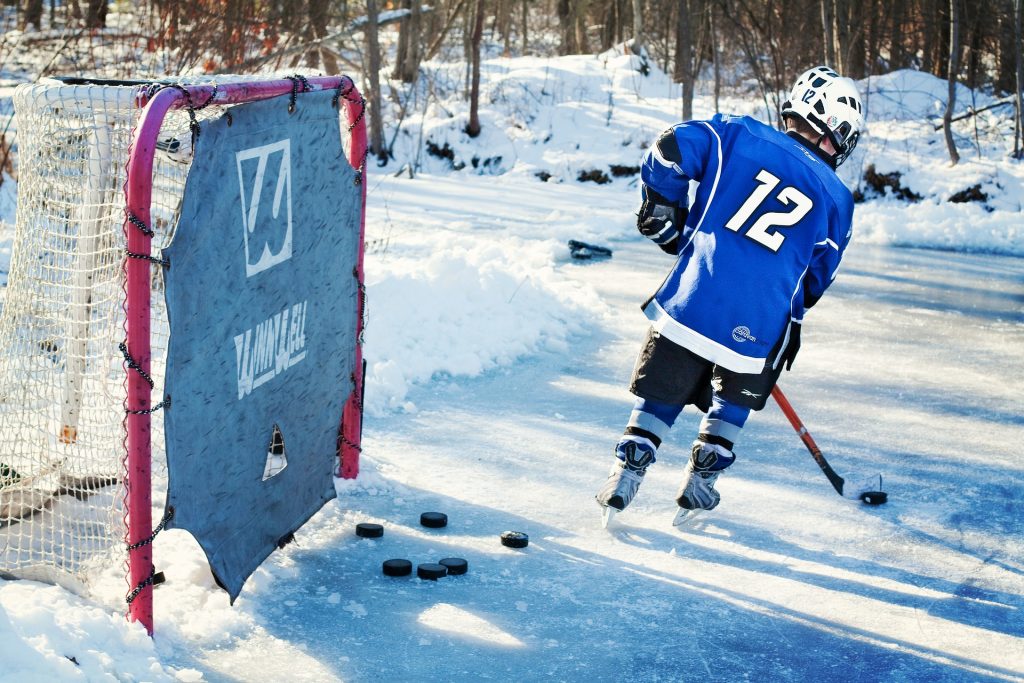Supplements that work for hockey players

Hockey is an anaerobic power sport that requires short, high-intensity efforts on the ice. It also requires significant muscle mass. It’s no wonder then that supplements are a part of the hockey player’s everyday life. The supplements discussed in this article can help increase these qualities, when taken the right way and paired with a balanced diet and proper training.
Before you jump into supplement consumption, I invite you to read our article on Basic Diet Tips for Hockey Players. After optimizing your diet and training, it is indeed possible to turn to supplements to get the “little extra” they can provide.
1. Sports nutrition
Energy bars, drinks and gels:
These food substitutes can be very handy for refueling before and during workouts / games, which are long lasting. For example, an energy bar can provide the necessary pre-workout carbohydrates and a sports drink (such as Gatorade or ideally homemade) consumed during, will ensure to keep a good level of hydration and blood sugar, therefore to keep a healthy level. constant energy until the end.
Protein powder:
Protein powders are very useful for easily meeting the dietary protein requirements necessary to build muscle mass and promote post-workout recovery. However, consuming post-workout protein without the presence of carbohydrates is not sufficient for building and maintaining muscle mass. In addition, it is quite possible, and less expensive, to find all the necessary proteins in the diet.
In the following example, the total intake is 150 g, which is the daily requirement for a 170 pound player:
Breakfast: 2 slices of bread + 2 tbsp. peanut butter + 175 g Greek yogurt + 1 orange = 30 g
Snack: 1 cup of raisins + ½ cup cottage cheese = 16 g
Lunch: 1 cup of quinoa + 120 g of fish + 1 cup of vegetables = 42 g
Snack: ¼ cup almonds + 1 apple = 8 g
Dinner: 1 and a half potatoes + 120 g of cooked chicken + 1 cup of vegetable soup = 43 g
Snack: 1 cup of milk / soy beverage + ½ cup of cereal = 11 g
TOTAL: 150 g
2. Medical supplements
Vitamin D:
Vitamin D is also known as the sunshine vitamin since it is mostly absorbed by the sun’s rays. Since hockey players are not among the population most exposed to the sun, especially those living further north, it is recommended to take supplements, especially as food sources are limited. Vitamin D contributes to bone health, therefore may decrease the risk of fractures, but also helps with the immune system and muscle strength.
Probiotics:
Probiotics are bacteria or yeasts that contribute to gut health by helping the good bacteria already present in the intestines. They can help prevent diarrhea and, for athletes, improve recovery and support the immune system. However, you have to know how to choose the right strain of bacteria. To help you, you can consult a healthcare professional.
3. Performance supplements
Creatine:
This supplement is proven to improve performance during high intensity efforts followed by short periods of recovery, such as in hockey. Creatine works to increase the renewal capacity of ATP (the energy of muscle cells) for short periods of 10-20 seconds. However, the recommended dosage should be followed, which is alternating (supplementation period followed by a withdrawal period) since side effects such as gastrointestinal disturbances may be felt. It is advisable to use it when increasing training volume and in the muscle mass gain phase, and not year round.
Beta-Alanine:
Most commonly used for 1 to 3-minute exercise, beta-alanine can increase muscle carnosine content, which is known to neutralize muscle acidity, thus supporting high intensity performance. However, it is more or less recognized for its benefits in hockey. This is because studies of this supplement have not yet looked at its effect on performance in hockey, which is intense effort, but short at the same time, repeatedly. Current studies are often more about football, sprinting or rowing.
Choice of product during purchase and vigilance
As mentioned in our previous blog, it is important to remain vigilant in choosing the products you buy to ensure that they are legal and not contaminated. It is also very important to consult a qualified health professional in this area (eg: sports doctor or sports nutritionist) before starting to consume it.
For more information on eating well to maximize your hockey performance, you can consult this guide.


